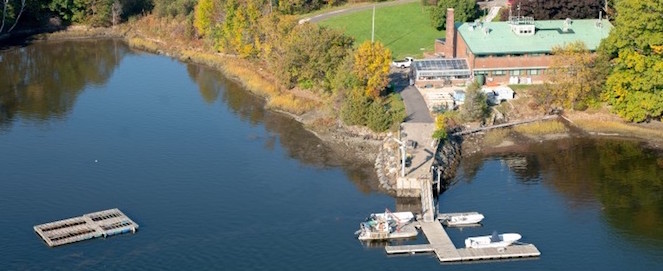
Jackson Estuarine Laboratory
EFFECTS OF ICE ON ASCOPHYLLUM NODOSUM WITHIN THE GREAT BAY ESTUARY SYSTEM OF NEW HAMPSHIRE‐MAINE22
Abstract
The, effects of ice on Ascophyllum nodosum (L.) Le Jolis within the Great Bay Estuary System of New Hampshire‐Maine, U.S.A. were assessed during the winter of 1980–81. Approximately 50% of the plants late fall standing crop, or an estimated 136 tonnes dry weight, was removed by ice‐rafting. Pieces of Ascophyllum removed averaged 22 cm in length, 15 g in fresh weight and generally represented 2–3 years of growth. Although the winter of 1980–81 wax somewhat extreme, a similar pruning process probably occurs each year contributing to the characteristic bushy habit of attached inner estuarine plants. Ascophyllum fragments rafted in ice and deposited into salt marshes are suggested as a major source of the, ecad scorpioides (Hornemann) Hauck.
Publication Date
9-1982
Journal Title
Journal of Phycology
Digital Object Identifier (DOI)
Document Type
Article
Recommended Citation
Mathieson, A.C., C.A. Penniman, P.K. Busse and E. Tveter-Gallagher. 1982. Effects of ice on Ascophyllum nodosum within the Great Bay Estuary System of New Hampshire-Maine. Journal of Phycology 18:331-336. (Contribution No. 1134 in the Agricultural Experiment Station Series)
